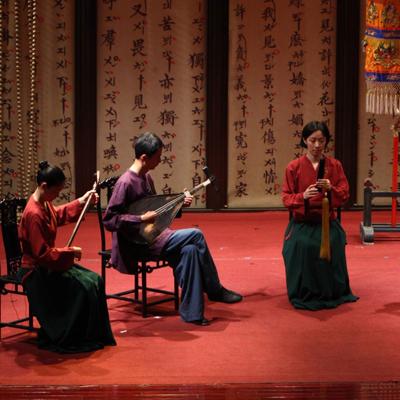
Lâm-hun Koh/Gang-a-Tsui Nanguan Music and Theater Troupe is considered by many as the hope for the future of nanguan music in Taiwan. In 1997, the troupe was commissioned by the Taiwan National Center for Traditional Arts to be cultural ambassadors for the Nanguan Opera Transmission Project. In addition to preserving the essence and spirit of nanguan music and opera, they also aim to revive these traditions by combining nanguan with other mediums such as experimental theater and Western contemporary classical music. In 2002, these outstanding musicians were featured artists at the Asian Traditional Arts Festival held in South Korea. That year, they also toured the U.S. giving performances in New York, Washington, New Orleans, and Atlanta. Since then, they have performed throughout the world in Japan, Poland, and Indonesia.
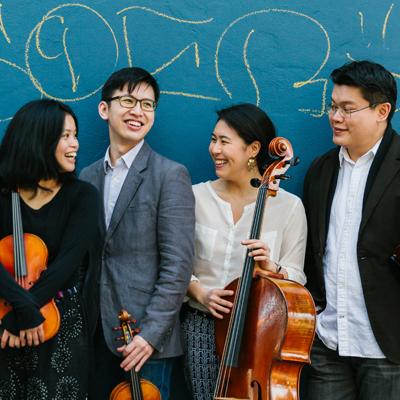
Winners of the First Prize and the Amadeus Prize at the 2006 London International String Quartet Competition, the FORMOSA QUARTET is “one of the very best quartets of their generation” (David Soyer, cellist of the Guarneri Quartet). Its debut recording on the EMI label was hailed as “spellbinding” (Strad Magazine) and “remarkably fine” (Gramophone). The quartet has given critically acclaimed performances at the Ravinia Festival, the Caramoor Festival, the Library of Congress, the Da Camera Society of Los Angeles, the Chicago Cultural Center, the Walter Reade Theater at Lincoln Center, Rice University, San Francisco State University, and Wigmore Hall in London. Formed in 2002 when the founding members came together for a concert tour of Taiwan, the Formosa Quartet is deeply committed to championing Taiwanese music and promoting the arts in the land of its heritage. With degrees from the Juilliard School, Curtis Institute of Music, and New England Conservatory, members Jasmine Lin, Wayne Lee, Che-Yen Chen, and Deborah Pae have established themselves as leading solo, chamber, and orchestral musicians, having performed in major venues throughout the U.S., Asia, and Europe, as well as top prizewinners in prestigious competitions such as the Paganini, Primrose, Fischoff, Naumburg, and Tertis.
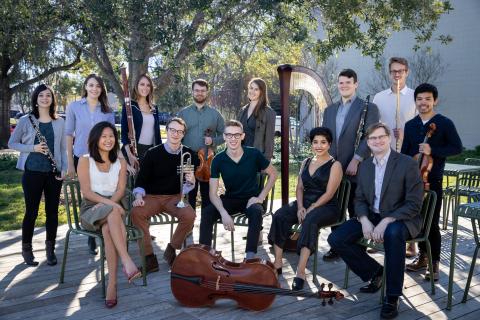
Loop38 is a music collective specializing in the music of living composers. With an emphasis on achieving artistic excellence, Loop38 is creating unique aural experiences for the community, recording and disseminating new works, and providing resources to inform listeners and performers. Co-founded by conductor Jerry Hou and pianist Yvonne Chen at the Shepherd School of Music in 2016, the group is comprised entirely of Houston transplants, using their unique experiences from all over the world to inform their interpretations. Made up of current students and alumni of the Shepherd School of Music, its members hold degrees from Rice University, The Juilliard School, Peabody Institute, Cleveland Institute of Music, Eastman School of Music, University of Michigan, University for the Arts in Bremen, Germany, Indiana University, and Oberlin Conservatory.
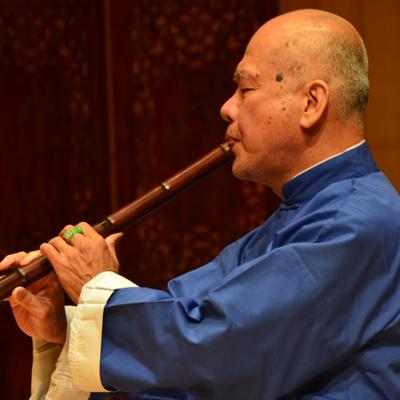
Kuei-An Yeh currently teaches at the Chinese Music Department at National Taiwan University of the Arts and directs the Taipei Minnan Yuefu and the nanguan ensemble affiliated with the Taipei Chinese Orchestra. In his versatile six-decade career, Yeh has engaged in music program production, education, and performance. He was born into a nanguan family; his father was a founding member of the Ju-ying Society of Minnan Music in Taitung. Since the age of five, Yeh studied singing and dongxiao (vertical bamboo flute) under masters Chen Tian and Ma Rui-ji and later with Zeng Shen. In 1980, the album on which he played dongxiao won the Best Performance Award of the Golden Tripod Awards. While an instructor of nanguan opera at what is now Taipei National University of the Arts, Yeh was recommended by renowned Taiwanese ethnomusicologist Hsu Tsang-Houei to be the chief music director of Taipei Minnan Yuefu, which under his leadership won the 1993 Folk Arts Heritage Award from Taiwan’s Ministry of Education. More recently, Yeh was invited to train nanguan musicians at Gang-a-Tsui Theater, during which he performed with the ensemble in concert (Looking up at the Moon) at the 2013 Taiwan International Festival of the Arts.
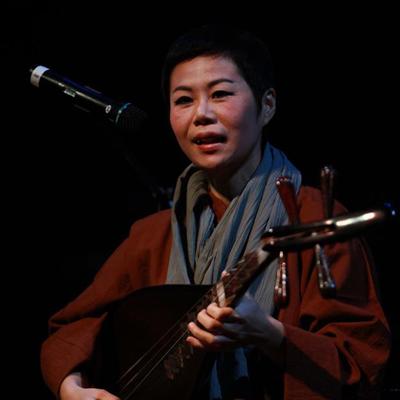
Mei-Hui Wei, lead performer of Gang-a-Tsui Theater, is a prolific nanguan artist versatile in both the traditional concert and theater styles. Since joining Gang-a-Tsui in 1993, Wei has toured extensively with the theater. Notable appearances include the International Nanguan Gala (Singapore, 1999), Asian Traditional Arts Festival (South Korea, 2002), International Traditional Dance Festival (Mexico, 2008), two U.S. tours (including New York, Washington, New Orleans, and Atlanta in 2003 and 2007), as well as other appearances in Japan, Poland, and Indonesia. Although established as a professional performer, Wei began pursuing academic training in 2009 at the Taipei National University of the Arts. She offered her experience and expertise and joined the effort to preserve and define nanguan theory, history and performance practice. She obtained her master’s degree in nanguan performance from the Department of Traditional Music, Taipei National University of the Arts, in 2016.
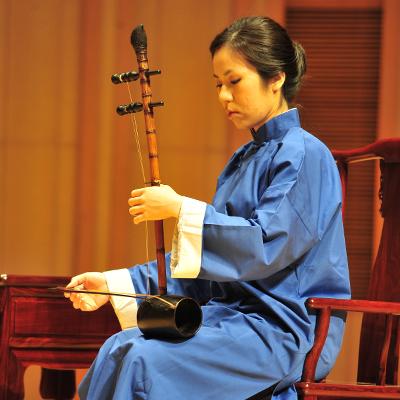
Jia-Chi Katie Chen is a rising talent whose diverse engagements cross multiple arenas—the traditional music scene, concert performances, and academia. As a western-trained musician focused on the classical piano, Chen joined Gang-a-Tsui Theater in 2011 and devoted herself full-time to nanguan studies. She has since performed with the troupe in many notable concerts, including Looking up at the Moon at the 2013 Taiwan International Festival of the Arts. Currently pursuing her studies at National Taiwan University’s Graduate Institute of Musicology, Chen investigates and theorizes the aesthetics of nanguan through analytical approaches; utilizing her undergraduate background in postcolonial studies, she embeds her analytical work within the dynamic backdrop of diasporic, societal, and geopolitical shifts. Chen’s recent projects include her paper, “(Un)Tamed Groovescapes: A Comparative Investigation of Tsit Tsuá Siunn-si Recordings across Geopolitical Sphere and Temporal Scope,” which was presented in the spring of 2016 at the NTU-CUHK-EARS Music Forum (Taipei), AAS-in-Asia Conference (Kyoto), and the ICTM-MEA Conference (Taipei).
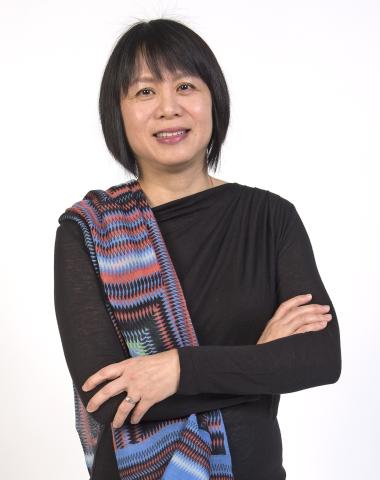
Shih-Hui Chen has received awards and commissions from the American Academy of Arts and Letters, Koussevitzky Foundation in the Library of Congress, Guggenheim Foundation, Radcliffe Institute of Advanced Studies at Harvard University, and the American Academy in Rome. Her compositions have been performed widely throughout the U.S. and abroad by groups including the Philadelphia Orchestra, Cleveland Orchestra, Boston Modern Orchestra Project, and Utah Symphony. Seeking a deeper understanding of her native culture and music, Chen spent two years in Taiwan studying indigenous and nanguan music (2010 Fulbright Senior Scholar and 2013 Taiwan Ministry of Foreign Affairs Fellowship, affiliated with the Institute of Ethnology, Academia Sinica). Chen currently serves on Asia Society Texas Center’s Performing Arts & Culture Committee and is a 2016-17 visiting professor at the Shanghai Conservatory of Music. She is the department chair of composition and a professor at The Shepherd School of Music, Rice University, where she also chairs the Syzygy New Music concert series. Recent projects include Fantasia on the Theme of Guanglingsan for zheng and Chinese orchestra, three new orchestral works, and Messages From a Paiwan Village—a 50-minute storytelling musical drama. Her music can be heard on Albany, New World and Bridge Records.
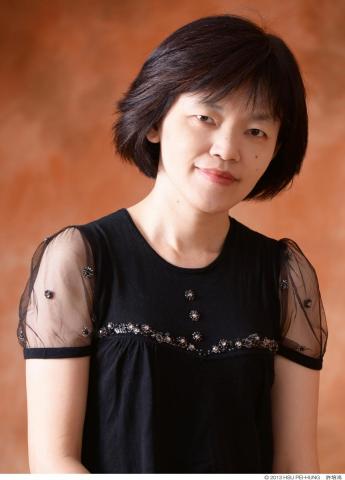
Ching-Yu Hsiau was born in Taichung, Taiwan. She earned a Bachelor of Musical Arts from National Taiwan Normal University in 1989. After passing a very competitive examination, she was awarded a government scholarship to study in France for four years, majoring in musical composition. In 1993, she received her Diplôme Supérieur de Composition from Ecole Normale de Musique de Paris under the advisory of Yoshihisa Taira. Among the four candidates pursuing the program of Ecriture du 20ème Siècle (supervised by Edith Lejet) at Conservatoire National Supérieur de Musique de Paris, she was the only one awarded the First Prize in 1994. After returning to Taiwan, her formal faculty appointments included lecturer and associate professor in the Department of Music at the Taipei Municipal University of Education. She has been a professor in the Department of Music at National Taiwan Normal University since August 2010.
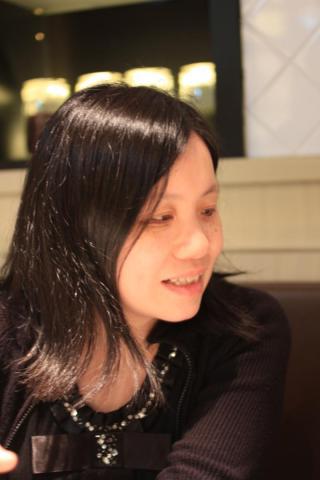
Composer Ling-Huei Tsai is an associate professor and the chair of the Department of Traditional Music at Taipei National University of the Arts (TNUA). Tsai’s works reflect a broad exposure to several traditional music genres in Taiwan, such as Koa-a-hi (Taiwanese Opera), Pak-koan (or Beiguan) ensembles, Chin (seven-stringed zither) music, and Lam-koan (or nanguan) ensembles. Her representative works include “Buddha’s Delights” for solo pipa; “Chin Thoughts” series, which translates Taiwan’s traditional music for more contemporary ensembles such as percussion quintet and mixed chamber groups; “Toki” (Knocking Down the Flags) for four-part male choir and “Toki” for alto saxophone and piano, both free realizations of the Pak-koan suona and percussion ensemble; and “A Ruined City” for voice and piano, which combines original Lam-koan tunes with new lyrics translated from poetry by Taiwan’s surrealist poet Chih-Chang Yang, written in Japanese during the 1930s. Tsai also teaches composition from improvisation to traditional music students, and TNUA’s traditional music ensemble has exchanged and co-created two productions, one with traditional artists of Bali in 2014, and one with faculty members of MUPA at Burapha University in Thailand in 2016.
